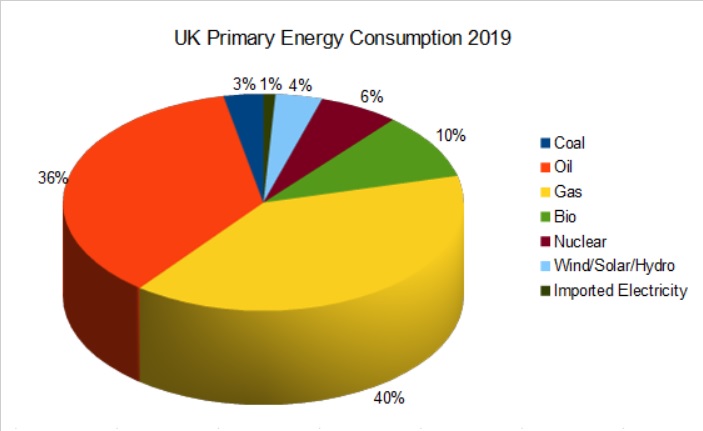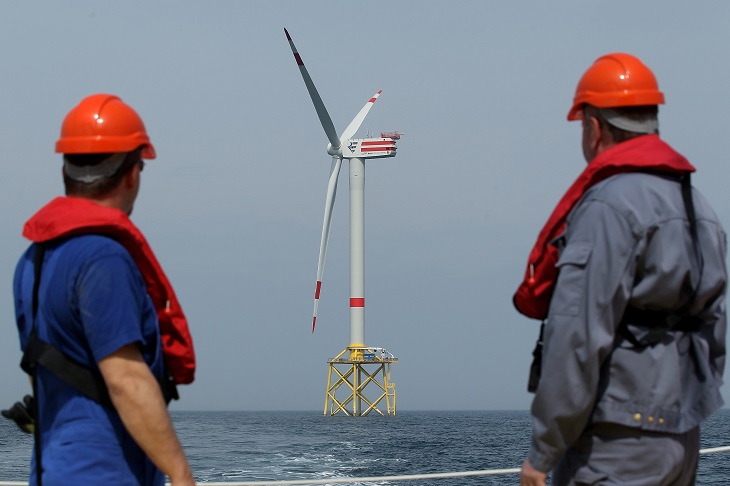Michael de Percy challenged Chris Bowen in person at the Sydney Institute regarding whether or not the government had a Plan B to keep the lights on if their Plan A fails. No coherent reply was forthcoming, and it looks as though the best we can expect from Bowen are more subsidies to keep the coal fires burning.
The official energy story is not likely to have a happy ending. The time has come for a new energy narrative based on realism and concern for the welfare of people and the planet. Let’s be energy realists and responsible stewards of the environment.
Energy realism rules in China and the rest of the developing world where they scramble for all the coal, oil, and gas they can get. Meanwhile, the nations of the West emulate the mythical farmer who incrementally reduced the rations of his workhorse until it died. We run down coal power and gas until there is not enough conventional power and parts of the grid are likely to die on nights when there is little or no wind.
Britain and Germany have passed that point and they are rapidly de-industrialising. Their collapse is cushioned by power from neighbours like Norway, France, and Poland who are well-served with conventional power.
Australia has recently reached that point, but we don’t have the benefit of extension cords. Our cushion is de-industrialisation as billions of dollars of investment in power-intensive industries has been outsourced to the US where energy is much cheaper.
We will be in dangerous territory if another coal plant closes while demand is boosted by population growth and the electrification of cars and households in places like the ACT where gas is banned.
The official Plan A is to increase the amount of wind and solar capacity, plus battery, however, we know that while renewable energy can displace coal, it cannot replace it.
The exit from coal is not accelerated by increasing penetration on good days because it is limited by the lowest level of output on nights with little or no wind, as a convoy travels at the speed of the slowest vessel.
Turning to the moral case for fossil fuels and the petrochemical industries. They enable people to live lives of ease and comfort that were inconceivable for the masses in the past. They are the basis of modern life, providing thousands of products that are ubiquitous in modern society. These include items that we use practically every minute of the day from putting on our makeup and cleaning our teeth to undergoing medical treatment. Imagine the pharmaceutical industry without petrochemical products.
The UN needs to have a plan to be able to support the demands of the eight billion on this globe for all the products and infrastructures that exist today that did not exist a few hundred years ago.
Efforts to cease the use of crude oil, without a planned replacement, could be the greatest threat to civilisation’s eight billion.
That is demonstrated by the overwhelming dominance of fossil fuels in the total energy use for Britain. (Electricity accounts for about a third of total energy consumption.)

Alex Epstein is a leading protagonist of the new energy narrative. In 2014 he published The Moral Case For Fossil Fuels and last year he released Fossil Future to explain that hydrocarbons and nuclear power are cheaper than (firmed) intermittent energy. They are reliable and have less environmental impact.
As for the environmental credentials of ‘clean energy’, look at the trail of environmental and human damage from the beginning to the end of the life of batteries, turbines, and solar panels. The cleanliness of ‘clean’ energy is one of the Big Lies of our time. Wind and solar power are not cheap or energy-efficient, after taking account of the energy required for mining, transport, processing, construction, and disposal of the hardware at the end of the line.
Got something to add? Join the discussion and comment below.
Get 10 issues for just $10
Subscribe to The Spectator Australia today for the next 10 magazine issues, plus full online access, for just $10.


























Comments
Don't miss out
Join the conversation with other Spectator Australia readers. Subscribe to leave a comment.
SUBSCRIBEAlready a subscriber? Log in